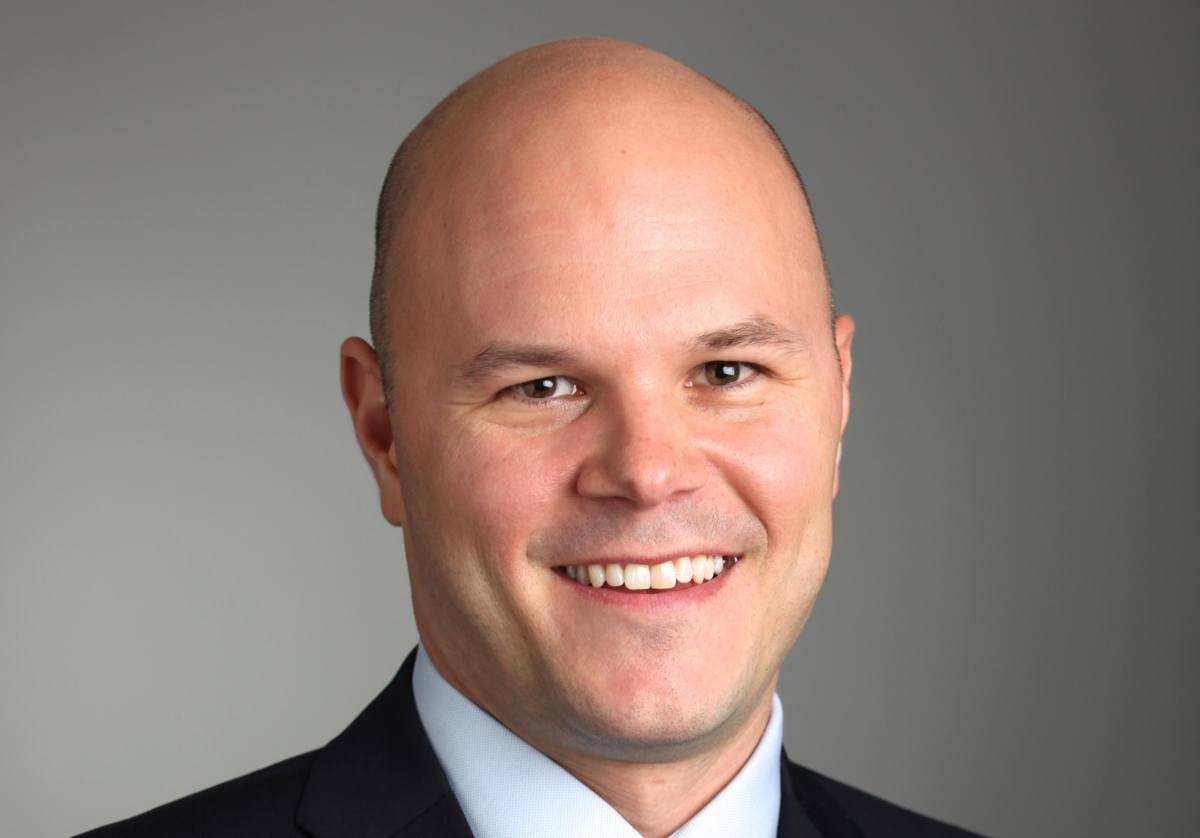‘Insurers are trying to remain profitable in a hard environment – it’s still a difficult and competitive market,’ notes Katherine Coates, head of insurance at Clifford Chance (CC), assessing the UK insurance industry a few days before the coronavirus outbreak was classed as a global emergency.
Since then, general counsel in top UK insurance firms have put long-term plans aside to concentrate on helping their companies handle the crisis. The mood is one of uncertainty as to how severely the insurance sector could be hit by Covid-19 and in what form claims by companies hoping to reclaim losses might take.
Insurers will likely be impacted as much by the economic slowdown as the claims. Turbulence has hit global financial markets hard as huge slowdowns in economic activity take hold.
Although there are predictions that corporates will look to the insurance industry for help if the UK economy continues to deteriorate, insurance lawyers are so far not expecting a huge claims impact on the sector. This is mainly because most businesses are not covered by forced closures due to infectious diseases in their business interruption policies – they typically cover firms from damages resulting from fires or floods. UK insurers are still recovering from the bout of flooding bought on by storms Dennis and Ciara in February, and are set to pay out more than £360m to households, according to the Association of British Insurers (ABI).
Says Paul Lewis, head of insurance at Herbert Smith Freehills (HSF): ‘I would be surprised if coronavirus triggered critical illness cover. Depending on the scale of the crisis, it might hit the life insurance market if there are lots of claims. On the commercial side, policyholders will be reviewing their business interruption policies and in particular, the non-damage linked extensions to cover. There will also be a focus on event cancellation insurance, but the real issues will be those in the supply chain leading to claims on credit insurance, but it is all far from clear at this early stage of the crisis.’
Some companies, however, might have disease protection in their cover if they paid for additional add-on services, the ABI said in March. The trade body added that enforced closure of businesses by the government could help them make their claim.
A complication for insurers beyond their strict liability will be intense polictical pressure to show flexibilty in assessing claims that technically stand outside coverage terms. Senior US politicians were publicly urging insurers to be generous in assessing coronarvirus claims in late March, a stance that was echoed in letter written on 26 March by the influential UK Treasury Parliamentary committee to the ABI.
Says Coates: ‘While the current circumstances have shown a clear coverage gap for businesses, the extent and way in which this could potentially be filled in the future will require collaboration between the industry, governments and the capital markets, likely including pooling of risk, the issue of insurance-linked securities and government guarantees.’
Insurers are showing signs of a willingness to be pragmatic as the coronavirus outbreak plays out in the UK. Following discussion between claimant firm Thompsons and the ABI about preserving access to justice throughout the outbreak, insurers and claimants have decided to create a protocol for an agreement on freezing all limitation dates in personal injury cases for a minimum of four weeks, when the arrangement will be reviewed and potentially extended.

Katherine Coates, Clifford Chance
Insurers are some of the largest investment managers in the world, with significant participation in areas like credit markets, while investment is particularly crucial for life and pension insurance products where the interval between insurers receiving premiums and paying claims can span decades.
According to the ABI, the UK insurance industry manages £1.8trn of investment – equivalent to around 25% of the UK’s total net worth – and so damage to the stock markets and UK economy will have considerable repercussions. ‘We might start to see a reduction in solvency and that’ll put small insurers to the test,’ predicts Quentin Zentner, GC of FTSE 100 insurance giant Phoenix Group.
Despite some fears for the industry, however, Zentner is sanguine: ‘Airline companies will start going under but it won’t be that alarming for insurers – they hold capital for the worst-case scenarios and we spend most of our time preparing for events like these.’
Keeping busy
Many insurance GCs will have been kept busy over the last few years by their companies’ acquisitive appetites. According to Clyde & Co’s Insurance Growth Report 2020, the volume of M&A transactions in the sector hit a four-year high in 2019 with 419 deals compared to 382 the year before.
‘It is a saturated market in the UK and in Western Europe and companies are wanting to expand globally and into emerging markets,’ says Helen Faulkner, head of insurance at DAC Beachcroft.
Aon hit the headlines in March when it announced a £22.5bn takeover of Willis Towers Watson in a deal that makes it the world’s largest insurance broker. The move comes just a year after Marsh & McLennan bought Jardine Lloyd Thompson (JLT) for £4.3bn, an acquisition that has been keeping Nick Havers, company chief counsel for UK and Ireland, busy. ‘There’s a lot going on. We did the JLT acquisition last year. There’s close engagement with the regulator and a lot of integration work to be done from that acquisition. It’s a hefty organisation.’
Coates at CC similarly points to a recent upswing in global M&A activity as insurers emerged out of Brexit contingency planning initatives. However, she says coronavirus has the potential to significantly slow the ‘impetus towards insurers being larger and more diverse’.
‘We are going to see more run-off closed book transactions in life and non-life companies as businesses look to streamline. Perhaps it’s also the effect of Brexit but we’re seeing more reviews of businesses in the UK – Lloyd’s of London has been doing lots of activity in reviewing poorly-performing areas of business,’ she notes.
Legal panel tenders are also becoming increasingly EMEA-centric, with a move towards more global-based panel reviews. Adds Ed Foss, head of insurance and reinsurance at CMS Cameron McKenna Nabarro Olswang: ‘GCs are looking more at the consolidation of legal suppliers, whereas that used to be more a procurement issue – they now work together. We’re not just seeing UK panels but global panels.’
Brexit would appear to be largely done and dusted from a logistical standpoint for UK insurers, with many transferring their headquarters to European bases, including insurer Chubb, which relocated its central office to Paris last year; AIG Group, which completed its move to Luxembourg; and Admiral Group, which relocated to Madrid. Says Zentner: ‘We feel we’ve largely restructured for Brexit. We set up an Irish subsidiary. For us what it has done is created a new relationship with the Irish regulator.’
But that there are still unanswered questions around Brexit policy for some: ‘After years of uncertainty about what Brexit means for their business, UK firms need to be able to plan properly for the future. Most are well prepared but they still don’t know whether they will be able to service policies held by EEA policyholders. Without a trade deal in place, they face another cliff-edge when the transition period comes to an end,’ says Barnaby Hinnigan, a partner at HSF specialising in non-contentious financial services work.
Foss, however, is more optimistic: ‘Everyone has Brexit planning done, be it different models. Insurance is used to reacting to regulatory change. It’s been well managed by the insurance sector.’
For good behaviour
Coronavirus and Brexit are not the only wider pressures affecting the insurance industry as #MeToo continues to be a focus for professional services, casting a light on systemic problems with culture. Last September, Lloyd’s of London chief executive John Neal pledged to tackle its male-dominated culture after Bloomberg Businessweek published a report that detailed evidence backing allegations of sexual harassment and assault against women at the company.
‘Insurance distribution is coming into regulatory focus more now than it has in the past. Insurance faces many of the same regulatory issues as other sectors – but the industry did not come under the spotlight as much as banks did after the financial crash,’ says Hinnigan.

Barnaby Hinnigan, Herbert Smith Freehills
Regulation has come into force to try to improve governance in financial services: the Senior Managers and Certification Regime, introduced into banks in 2016, was extended to apply to insurance companies in 2018. The aim of the regulation has been to improve standards of integrity and accountability in financial firms by designating senior individuals as ‘senior managers’ with responsibilities approved by the Financial Conduct Authority or Prudential Regulation Authority.
‘A major theme GCs are facing is the regulatory focus on culture and non-financial misconduct. In the retail insurance market – in fact in any sales environment or people business – driving through cultural change is a major challenge. Most GCs will tell you culture is close to the top of their agendas,’ notes Hinnigan.
Adds Zentner: ‘Our legal team has doubled since we acquired Swiss Re’s closed-book consolidator, British ReAssure, last year, which bought with it 30 lawyers. We are working through a purpose of statement now. Culture needs a lot of unpacking in the insurance sector to establish a set of values. Part of our culture is around growing talent and being an employer of choice. We have a large learning and development team.’
Climate change has also emerged as a complex but increasing area of risk management for insurers, highlighted not only by the Extinction Rebellion protests last year but also by the flooding problems in February. Climate change concerns are relevant to insurers because more severe weather events means a higher number of costly claims for them; there is also a risk that if a ‘disorderly’ transition to a low-carbon economy takes place, according to the ABI, the value of many assets insurers invest in could fall with little warning. Says Foss: ‘There’s been an increase in claims around flooding but there are wider effects in how insurers are viewed over these types of events. Insurers are now looking at moderating the risks around these exposures.’
Cooper adds: ‘There’s a recognition that large-scale changes in mood in the population do have an impact on insurance. Insurers are some of the biggest investment managers in the world and it is crucial that their investment arms can understand the effects of climate change on the economy to better manage their portfolios. There is also public pressure to provide insurance which to some degree matches public sentiment.’

Ed Foss, CMS Cameron McKenna Nabarro Olswang
The extent to which the insurance sector will be hit by the effects of Covid-19 on society and the global economy is too early to say; the latest statements from the Organisation for Economic Co-operation and Development is that the economic shock resulting from coronavirus is already bigger than the financial crisis. The next few months will be crucial for insurance GCs in enacting disaster response strategies. However, they may already be a few steps ahead. Says Hinnigan: ‘I’ve seen a trend in insurance GCs and clients asking for more training around disaster response management. The GC and the legal team tend to be very close to the top of the disaster cascade and legal teams are plugged into the crisis early on.’
The perennial desire of GCs to be given full input on business-critical matters looks set to be be emphatically fulfilled in 2020. For better or worse.
Resilience – cyber risk and tech top of insurance GC agendas
The threat of data privacy breaches and hacking have moved significantly up the risk rankings in companies now that most operations are IT-driven. Now more people are being encouraged to work from home for an undefined amount of time to try and slow the spread of coronavirus, these systems are being utilised more than ever.
But lawyers hint at something of a protection gap in the market for cyber insurance, which remains limited cover for policyholders: ‘Two years ago we talked to a broker and it didn’t sound like cyber insurance products had gained a huge amount of traction in the market,’ says Helen Faulkner, head of insurance at DAC Beachcroft.
Nonetheless, insurance lawyers agree that demand for protection has increased in recent years – unsurprising given some of the eye-watering penalties corporates can be struck with by the Information Commissioner’s Office over data breaches following the introduction of the General Data Protection Regulation (GDPR) framework in 2018. British Airways faced a record fine of £183m for a breach of its security systems the same year.
‘Cyber is an interesting area. For small companies it has some penetration because protection is very cheap for them and some larger companies with large risk management teams who understand the risks are buying cover suited to their perceived risks. But there is a large slug of middle-to-large companies that don’t have cyber protection. It’s too early to say whether working from home will have an effect on demand but criminals are trying to take advantage by sending out more phishing emails than normal, which could lead to more breaches and there is a concern that remote networks have been set up in haste without proper regard to security,’ says James Cooper, chair of global insurance at Clyde & Co.
Conversely, the Prudential Regulation Authority (PRA) and the Financial Conduct Authority (FCA) are becoming increasingly focused on ‘operational resilience’ within the insurance industry, lawyers report, from how cohesive the supply chain is with underwriters and brokers, to how insurers respond to cyber attacks and deal with bandwidth issues. And with the coronavirus-battered UK economy certain to face a sharp recession in 2020, this scrutiny will only increase: ‘The PRA and the FCA are probably very interested in financial resilience as we are going into turbulent times,’ reflects Quentin Zentner, GC of insurance giant Phoenix Group.
Clifford Chance partner Katherine Coates says operational resilience is crucial for insurers who are vulnerable to damaging cyber attacks not only because they hold so much customer data but also because of insurers’ investment in and reliance on third-party partnering. ‘Insurers are looking at using technology to reduce costs to enable smarter underwriting. Most insurers have a technology group looking into joint ventures with technology companies from large players like Microsoft to start-ups and are increasingly using data analytics to better inform underwriting and pricing. For insurers, it is mostly about partnerships with technology companies rather than trying to develop pure in-house solutions.’
Adds CMS UK partner Ed Foss: ‘The biggest challenge for GCs in the Lloyd’s of London market is their focus on profitable businesses and ensuring that distribution models work effectively through technology and underwriting results. The Lloyd’s market has systems that need to be updated.’
A growing focus on using technology to create efficiencies within in-house legal teams is seeing Zentner from the Phoenix Group start to roll out electronic signature software DocuSign. Likewise, in 2018 Aviva hired Caroline Brown as head of legal operations to improve its use of technology within the 360-strong legal team under GC Kirsty Cooper.


